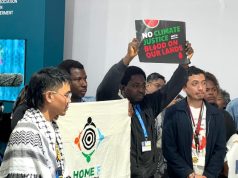Nigeria’s Health Financing: Can Big Tobacco Pay For The Damage?
By Robert Egbe
Nigeria’s decision to earmark “sin taxes” on alcohol, tobacco, and sugary drinks for health financing marks a bold step towards prioritising citizens’ wellbeing. It aligns with long-standing calls from public health advocates and the World Health Organisation (WHO).
The urgency is clear. Nigerians spend an estimated N1.92 trillion (about $1.26 billion) annually treating non-communicable diseases (NCDs), which account for nearly 30 percent of deaths in the country.
Tobacco, alcohol, and sugary drinks are major culprits.
Tobacco alone drives multiple illnesses, lung, mouth, bladder and colon cancers, heart disease, stroke, chronic respiratory conditions, type 2 diabetes, and more.
Globally, it claims over seven million lives yearly, with 300,000 deaths in Africa.
Yet, Big Tobacco thrives. In 2015, the six largest cigarette companies made $62 billion in profits, more than the budgets of several nations, fuelling aggressive marketing and youth-targeted campaigns.
Nigeria’s funding for tobacco control, however, remains meagre. In 2024, just N13 million was allocated to the Tobacco Control Fund (TCF), far below the estimated N300 million needed.
Advocates argue that if the country is serious about cutting tobacco’s toll, it must not only tax the products but also hold the industry accountable.
Canada offers a precedent. In August 2025, after a 27-year legal battle, the Canadian government secured a C$32.5 billion ($23.7 billion) settlement from tobacco giants to compensate for decades of healthcare costs.
It follows the United States’ historic 1998 $206 billion Master Settlement Agreement with four major firms.
For Nigeria, these global examples provide a roadmap.
The Federal Competition and Consumer Protection Commission (FCCPC) already fined British American Tobacco $110 million in 2023, showing legal action is possible locally.
But experts say airtight litigation, robust data on healthcare costs, civil society mobilisation, and international collaboration are key to success.
Nigeria could also adapt Canada’s Tobacco Claims process, enabling individuals and families harmed by tobacco to seek compensation without upfront legal costs.
Such steps would not only deliver justice but galvanise public support.
The battle ahead is not just against cigarettes but against new nicotine products, vapes, pouches, and heated tobacco, that target young Nigerians.
Any settlement must fund strong counter-marketing, research, and enforcement to curb this rising threat.
Canada’s victory proves Big Tobacco can be held accountable.
The question now is whether Nigeria has the political will and legal rigour to follow suit, and, in doing so, change the future of health financing in Africa.
Egbe is a tobacco control advocate at Corporate Accountability and Public Participation Africa (CAPPA).








